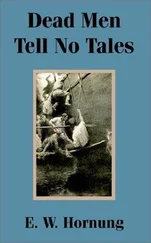E. Hornung - No Hero
Здесь есть возможность читать онлайн «E. Hornung - No Hero» весь текст электронной книги совершенно бесплатно (целиком полную версию без сокращений). В некоторых случаях можно слушать аудио, скачать через торрент в формате fb2 и присутствует краткое содержание. Год выпуска: 2017, Издательство: epubBooks Classics, Жанр: Классический детектив, на английском языке. Описание произведения, (предисловие) а так же отзывы посетителей доступны на портале библиотеки ЛибКат.
- Название:No Hero
- Автор:
- Издательство:epubBooks Classics
- Жанр:
- Год:2017
- ISBN:нет данных
- Рейтинг книги:5 / 5. Голосов: 1
-
Избранное:Добавить в избранное
- Отзывы:
-
Ваша оценка:
- 100
- 1
- 2
- 3
- 4
- 5
No Hero: краткое содержание, описание и аннотация
Предлагаем к чтению аннотацию, описание, краткое содержание или предисловие (зависит от того, что написал сам автор книги «No Hero»). Если вы не нашли необходимую информацию о книге — напишите в комментариях, мы постараемся отыскать её.
.’
No Hero — читать онлайн бесплатно полную книгу (весь текст) целиком
Ниже представлен текст книги, разбитый по страницам. Система сохранения места последней прочитанной страницы, позволяет с удобством читать онлайн бесплатно книгу «No Hero», без необходимости каждый раз заново искать на чём Вы остановились. Поставьте закладку, и сможете в любой момент перейти на страницу, на которой закончили чтение.
Интервал:
Закладка:
There was no laughing at him. Though barely twenty, as I knew, he was man enough for any age as we faced each other in my room, and a man who knew his own mind into the bargain.
"But, my dear Bob," I ventured to remonstrate, "you are years too young—"
"That's my business. I am in earnest. What about you?"
I breathed again.
"My good fellow," said I, "you are at perfect liberty to give yourself away to me, but you really mustn't expect me to do quite the same for you."
"I expect precious little, I can tell you!" the lad rejoined hotly. "Not that it matters twopence so long as you are not misled by anything I said the other day. I prefer to run straight with you—you can run as you like with me. I only didn't want you to think that I was saying one thing and doing another. As a matter of fact I meant all I said at the time, or thought I did, until you came along and made me look into myself rather more closely than I had done before. I won't say how you managed it. You will probably see for yourself. But I'm very much obliged to you, whatever happens. And now that we understand each other there's no more to be said, and I'll clear out."
There was, indeed, no more to be said, and I made no attempt to detain him; for I did see for myself, only too clearly and precisely, how I had managed to precipitate the very thing which I had come out from England expressly to prevent.
Chapter VIII
Prayers and Parables
I had quite forgotten one element which plays its part in most affairs of the affections. I mean, of course, the element of pique. Bob Evers, with the field to himself, had been sensible and safe enough; it was my intrusion, and nothing else, which had fanned his boyish flame into this premature conflagration. Of that I felt convinced. But Bob would not believe me if I told him so; and what else was there for me to tell him? To betray Catherine and the secret of my presence, would simply hasten an irrevocable step. To betray Mrs. Lascelles, and her secret, would certainly not prevent one. Both courses were out of the question upon other grounds. Yet what else was left?
To speak out boldly to Mrs. Lascelles, to betray Catherine and myself to her?
I shrank from that; nor had I any right to reveal a secret which was not only mine. What then was I to do? Here was this lad professedly on the point of proposing to this woman. It was useless to speak to the lad; it was impossible to speak to the woman. To be sure, she might not accept him; but the mere knowledge that she was to have the chance seemed enormously to increase my responsibility in the matter. As for the dilemma in which I now found myself, deservedly as you please, there was no comparing it with any former phase of this affair.
"O, what a tangled web we weave,
When first we practise to deceive!"
The hackneyed lines sprang unbidden, as though to augment my punishment; then suddenly I reflected that it was not in my own interest I had begun to practise my deceit; and the thought of Catherine braced me up, perhaps partly because I felt that it should. I put myself back into the fascinating little room in Elm Park Gardens. I saw the slender figure in the picture hat, I heard the half–humorous and half–pathetic voice. After all, it was for Catherine I had undertaken this ridiculous mission; she was therefore my first and had much better be my only consideration. I could not run with the hare after hunting with the hounds. And I should like to have seen Catherine's face if I had expressed any sympathy with the hare!
No; it was better to be unscrupulously stanch to one woman than weakly chivalrous toward both; and my mind was made up by the end of dinner. There was only one chance now of saving the wretched Bob, or rather one way of setting to work to save him; and that was by actually adopting the course with which he had already credited me. He thought I was "trying to cut him out." Well, I would try!
But the more I thought of him, of Mrs. Lascelles, of them both, the less sanguine I felt of success; for had I been she (I could not help admitting it to myself), as lonely, as reckless, as unlucky, I would have married the dear young idiot on the spot. Not that my own marriage (with Mrs. Lascelles) was an end that I contemplated for a moment as I took my cynical resolve. And now I trust that I have made both my position and my intentions very plain, and have written myself down neither more of a fool nor less of a knave than circumstances (and one's own infirmities) combined to make me at this juncture of my career.
The design was still something bolder than its execution, and if Bob did not propose that night it was certainly no fault of mine. I saw him with Mrs. Lascelles on the terrace after dinner; but I had neither the heart nor the face to thrust myself upon them. Everything was altered since Bob had shown me his hand; there were certain rules of the game which even I must now observe. So I left him in undisputed possession of the perilous ground, and being in a heavy glow from the strong air of the glacier, went early to my room; where I lay long enough without a wink, but quite prepared for Bob, with news of his engagement, at every step in the corridor.
Next day was Sunday, and chiefly, I am afraid, because there was neither blind nor curtain to my dormer–window, and the morning sun streamed full upon my pillow, I got up and went to early service in the little tin Protestant Church. It was wonderfully well attended. Quinby was there, a head taller than anybody else, and some sizes smaller in heads. The American bridegroom came in late with his "best girl." The late Vice Chancellor, with the peeled nose, and Mr. Belgrave Teale, fit for Church Parade, or for the afternoon act in one of his own fashion–plays, took round the offertory bags, into which Mr. Justice Sankey (in race–course checks) dropped gold. It was not the sort of service at which one cares to look about one, but I was among the early comers, and I could not help it. Mrs. Lascelles, however, was there before me, whereas Bob Evers was not there at all. Nevertheless, I did not mean to walk back with her until I saw her walking very much alone, a sort of cynosure even on the way from church, though humble and grave and unconscious as any country maid. I watched her with the rest, but in a spirit of my own. Some subtle change I seemed to detect in Mrs. Lascelles as in Bob. Had he really declared himself overnight, and had she actually accepted him? A new load seemed to rest upon her shoulders, a new anxiety, a new care; and as if to confirm my idea, she started and changed colour as I came up.
"I didn't see you in church," she remarked, in her own natural fashion, when we had exchanged the ordinary salutations.
"I am afraid you wouldn't expect to see me, Mrs. Lascelles."
"Well, as a matter of fact, I didn't, but I suppose," added Mrs. Lascelles, as her rich voice fell into a pensive (but not a pathetic) key, "I suppose it is you who are much more surprised at seeing me. I can't help it if you are, Captain Clephane. I am not really a religious person. I have not flown to that extreme as yet. But it has been a comfort to me, sometimes; and so, sometimes, I go."
It was very simply said, but with a sigh at the end that left me wondering whether she was in any new need of spiritual solace. Did she already find herself in the dilemma in which I had imagined her, and was it really a dilemma to her? New hopes began to chase my fears, and were gaining upon them when a flannel suit on the sunlit steps caused a temporary check: there was Bob waiting for us, his hands in his pockets, a smile upon his face, yet in the slope of his shoulders and the carriage of his head a certain indefinable but very visible attention and intent.
"Is Mrs. Evers a religious woman?" asked my companion, her step slowing ever so slightly as we approached.
Читать дальшеИнтервал:
Закладка:
Похожие книги на «No Hero»
Представляем Вашему вниманию похожие книги на «No Hero» списком для выбора. Мы отобрали схожую по названию и смыслу литературу в надежде предоставить читателям больше вариантов отыскать новые, интересные, ещё непрочитанные произведения.
Обсуждение, отзывы о книге «No Hero» и просто собственные мнения читателей. Оставьте ваши комментарии, напишите, что Вы думаете о произведении, его смысле или главных героях. Укажите что конкретно понравилось, а что нет, и почему Вы так считаете.










